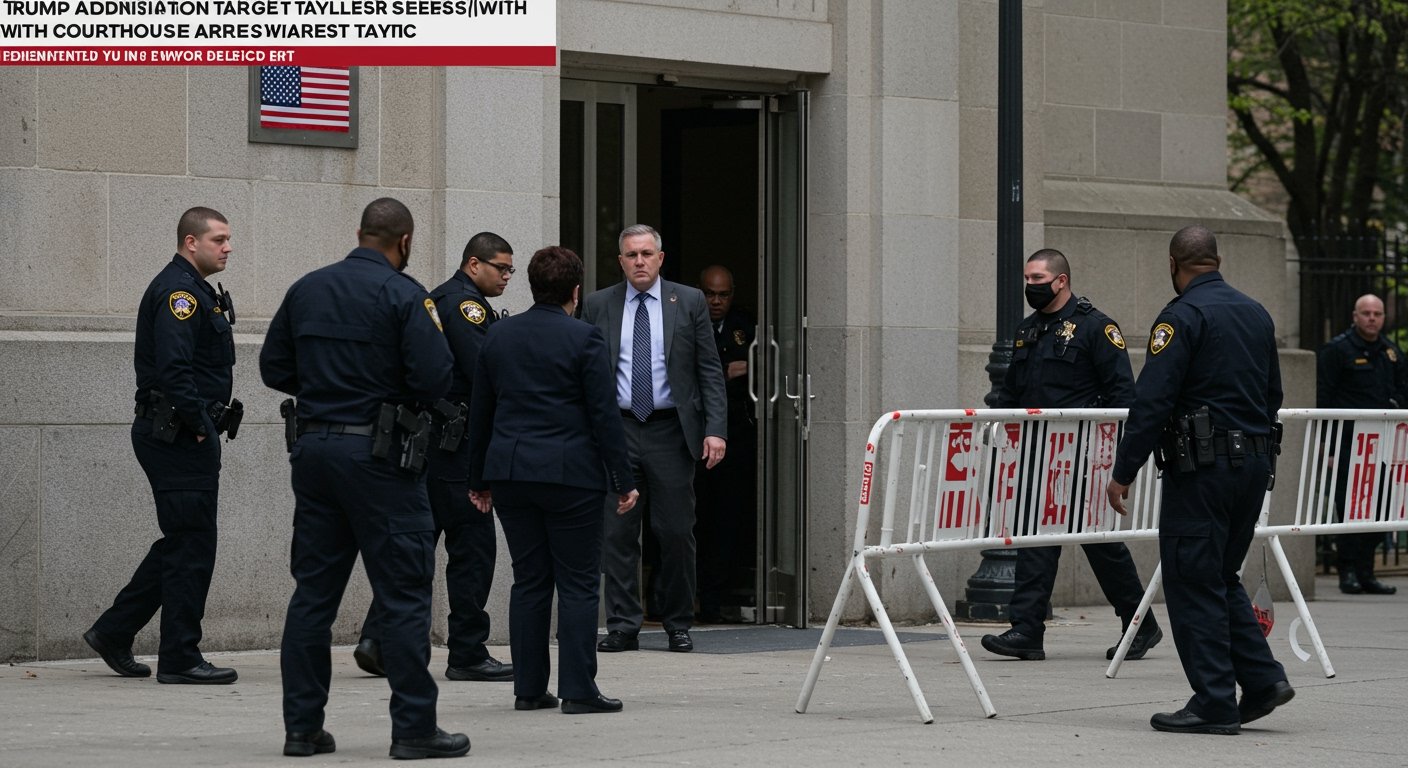PORTLAND, OR – The Trump administration has implemented a controversial new tactic in its immigration enforcement strategy: arresting asylum seekers immediately outside of courthouses where they are scheduled to appear for hearings. This approach is sparking significant tension and fueling protests in cities such as Portland, Oregon, and Seattle, Washington, as it marks a notable expansion of enforcement into spaces previously considered less vulnerable.
The policy aligns with broader immigration enforcement goals articulated by President Donald Trump, including executive orders designed to increase the use of expedited removals – a process allowing for the swift deportation of certain non-citizens without a full court hearing. Critics argue that applying this tactic to individuals actively pursuing asylum in the U.S. undermines due process and the integrity of the legal system.
A Case in Point: The Arrest of O-J-M
A notable illustration of this new enforcement method involves O-J-M, an asylum seeker whose case highlights the concerns raised by legal advocates. According to her attorneys, O-J-M had been complying with U.S. Immigration and Customs Enforcement (ICE) check-ins and had formally filed for asylum on February 6, 2025. Despite her adherence to immigration requirements, she was arrested by ICE agents outside the Portland Immigration Court on June 2, 2025, immediately after attending her first hearing. [13]
Attorneys representing O-J-M have strongly criticized her detention, alleging that officials within the Department of Homeland Security manipulated the immigration system. They contend this was done specifically to detain her for rapid deportation, thereby circumventing the standard due process protections she should be afforded as an asylum applicant. [13] Her legal team is actively seeking her immediate release.
In response, ICE attorneys have defended the agency’s actions. They maintain that O-J-M is subject to expedited removal proceedings and argue that her due process rights were not violated by the courthouse arrest or her subsequent detention. [13] This legal dispute underscores the fundamental disagreements over the scope of enforcement authority and immigrant rights under current administration policies.
Pattern of Courthouse Enforcement
The case of O-J-M is not isolated. Reports indicate a pattern of similar arrests occurring outside immigration courts. At least four asylum seekers, including O-J-M, hailing from countries including Mexico, Ecuador, and Venezuela, have been arrested outside the Portland Immigration Court this month alone after attending required hearings. [13] This suggests a deliberate strategy rather than sporadic incidents.
Beyond Portland, the practice has been observed elsewhere. A family from Cuba was detained outside an immigration court in San Antonio, Texas, on June 11, 2025. [13] These incidents point to a potential nationwide expansion of this controversial tactic.
The Policy and Its Implications
The increased enforcement presence at immigration courts across the country was reportedly communicated internally within the government. According to a report by NPR, this intensified strategy was outlined in an email sent to immigration judges on May 30. [13] This internal communication suggests a directive from higher levels within the administration to pursue such arrests.
The tactic of apprehending individuals at courthouses, particularly those appearing for scheduled legal proceedings, raises concerns about access to justice and the chilling effect it may have on asylum seekers and other immigrants navigating the legal system. Legal advocates argue that arresting people as they exit court deters them from pursuing their cases, potentially forcing them back into dangerous situations in their home countries.
Growing Tensions and Legal Challenges
The implementation of this enforcement method has significantly contributed to growing tensions between immigrant communities, legal aid groups, and federal immigration authorities. It has also fueled public demonstrations in cities like Portland and Seattle, where protests have taken place to condemn the practice and support affected individuals.
The legal challenges brought by attorneys for individuals like O-J-M highlight the complex intersection of immigration enforcement, due process rights, and the asylum process under the current administration. Courts are now being asked to weigh in on the legality of these courthouse arrests and their impact on the fundamental rights of those seeking refuge in the United States.
As the Trump administration continues to pursue more aggressive immigration enforcement strategies, the practice of arresting asylum seekers at courthouses remains a focal point of legal battles and public debate over immigration policy and human rights.





